Four Weddings and a Funeral (1994)
Five good reasons to stay single...
Charles: Do you think there really are people who can just go up and say, "Hi, babe. Name's Charles. This is your lucky night?"
Matthew: Well, if there are, they're not English.
Englishness, the most elusive of qualities, is almost impossible to define. Yet Elgar understood it, William Walton, Ralph Vaughan Williams, and Gustav Holst understood it— and so did Gerald Finzi— perhaps the most English composer of them all—despite, or most probably because of his Jewish, Italian-German roots. As with Holst (born to a Swedish-Latvian-Russian background ) or the Anglo-Russian actor, George Sanders, or the Japanese-British novelist, Kazuo Ishiguro, it takes the outsider to understand us the best. And you could even say that Richard Rodney Bennett's soundtrack for Four Weddings and a Funeral (1994) makes the film. The most English of soundtracks: elegiac, nostalgic and poignant— especially when juxtaposed against W. H. Auden's Funeral Blues. Take away the Bennett (and the Auden), and you're left with something different. The funeral scene in Four Weddings and a Funeral is genuinely moving.
Anyway. Four Weddings has to be the best of the Richard Curtis crop. Interestingly, I read that Curtis' father was a Czechoslovakian refugee who ‘moved to Australia at the age of thirteen.’ If Love Actually (2003)— fast becoming Britain's Christmas response to It's a Wonderful Life (1946)— is a Temple to Cringe and Notting Hill (1999) an enjoyable guilty pleasure, Four Weddings and a Funeral, in my opinion, can stand alone as one of the best British films of the 90s. It's a classic. Richard Curtis wrote the screenplay, and the director was Mike Newall, whose Dance with a Stranger (1985), a beautifully made account of the Ruth Ellis tragedy, is another stand-out film of the British 80s revival.
Four Weddings. You, of course, know the plot. A group of thirty-somethings (Hugh Grant, Kristin Scott Thomas, Charlotte Coleman, Anna Chancellor et al) attend a series of smart weddings (in London and the country) and a funeral near Dagenham, Essex— next to an industrial soap factory. Very Curtis, that. One Nation. The public-school-educated-morning-coat classes ('I played Rugby with him at school') the main contenders; a radical, punky eccentric for comic effect (Charlotte Coleman in Four Weddings, Rhys Ifans in Notting Hill), a disabled person (David Bower in Four Weddings, a wheelchair-bound Gina McKee in Notting Hill), an American film star (Andie McDowell, Julia Roberts, ); a gay couple, a nod to the Scots and a weirdo vicar (“I’m training to be a priest”)— the whole shooting match pulled together by a sprinkling of cheesy pop hits and the 'mercy dash' at the end of the film (preferably in a beaten-up Land Rover), or a fisticuffs fight— altho' in Four Weddings it's more the case of Duckface Assault. And jokes about sheep. Not that you should take any of this as a criticism. Curtis developed a successful formula and stuck with it to significant success, and re-watching Four Weddings again— after all these years— left me with a feeling of immense nostalgia, even sadness, for the last gasp of an England which, perhaps, even then, didn't exist, but is now fast disappearing. Or has probably gone. Hastened, in its demise, by Cool Britannia. When the only skyscraper on the London skyline was the NatWest Tower, and olde coaching inns had smelly carpets and signs to the loos in gothic gilt lettering.
But then, perhaps, this sort of thing is the essence of Englishness? Melancholy? A yearning for the past, of things lost— a quality Elgar and Finzi nailed in abundance. And the understatement. And the embarrassment. Oh, the embarrassment:
Charles: How's your gorgeous girlfriend?
John with the Unfaithful Wife- Wedding One: She's no longer my girlfriend.
Charles: [funny] Ah, dear. I wouldn't get too gloomy about it. Rumour has it she never stopped bonking Toby de Lisle in case you didn't work out.
John with the Unfaithful Wife- Wedding One: [disgusted] She is now my wife.
Which takes me to Hugh Grant. Is this his best film? Could be. He’s best though, as a total shit or somebody otherwise a bit edgy— as Meredith Potter, the camp impresario in An Awfully Big Adventure (1995) (Mike Newall again) or the left-wing Esmond Romilly type in The Remains of the Day (1993)— a brilliant film we need to cover at some point. And Andie's character, Carrie, is, of course, appalling. Apart from her considerable looks she has no redeeming features. She leads poor Charles up the garden path, 'ruthlessly sleeps with him', then dumps him for a pompous, moneyed, fifty-something MP. But then, as She-Who-Can-Do-No-Wrong Andie said in an interview, 'It wouldn't be a film, would it?'
What else? The locations. We have to mention the locations. The location director deserves a medal: as in all my favourite films, there's a sense of place— a nod to that noble, if slightly eccentric discipline, psychogeography— which, again, is very much part of what the film's all about. Or, at least, that's the way I see it. Four Weddings and a Funeral was shot in London and the Home Counties: at a brace of country houses— Albury Park (near Guildford) standing in for a baronial Scottish lodge (the Surrey Hills for the Highlands), a Georgian terrace in Highbury Fields, a South Kensington Mews, olde half-timbered coaching inns, The Kings's Arms and The Crown in Old Amersham; and the churches: the Priory Church of St. Bartholomew the Great, West Smithfield, the Old Royal Naval Chapel, Greenwich, and most brilliantly, for the funeral, St. Clement's, West Thurrock, Essex— an historic Grade I listed church, placed bang next door to Proctor & Gamble's industrial works— a location, which for some reason, I find poignant and moving. Perverse, fluid— and in a sense, desperately English.
So there you go. Four Weddings and Funeral (1994). A charming, delightful, witty jewel of a film. Which, with the passing of time, deserves its classic status. Sometimes, a film— from a strange combination of good writing, decent direction, coincidences, mishaps, compromise, chance and luck— catches the zeitgeist. The Guardian, in a 20th anniversary retrospective of Four Weddings, declared (that): "Its influence on the British film industry, on romantic-comedy writing, on the pop charts, on funeral readings, on haircuts, was enormous." Former Home Secretary Amber Rudd appears on the credits as 'aristocracy coordinator’. Says it all.
I caught Four Weddings and a Funeral on Late Nite television, but it is, of course, also available to watch via Amazon Prime digital download and on DVD and Blu-ray. You can also download Sir Richard Rodney Bennett’s main love theme on Spotify, although After the Funeral— perhaps the most moving and elegiac of Bennett’s Four Weddings tracks— can also be found on YouTube.
You’ve just been reading a newsletter for both free and 'paid-for' subscribers. I hope you enjoyed it. Thank you to all those of you who have signed up so far.
Two options on Luke Honey’s WEEKEND FLICKS. Cinema for Grown Ups: ‘Paid-for’ subscribers get an extra exclusive film recommendation every Friday morning, plus full access to the complete archive— which should list over a hundred films by the end of the year. It costs £5 a month (or £50 a year)— a bargain, frankly, when you compare it to a few cups of coffee or a pint of beer in the pub. ‘Free’ subscribers get access to the Sunday newsletter, plus the ‘free subscriber’ films in the archive. Either option is a good bet.
In the meantime, have a relaxing and cinematic Sunday…


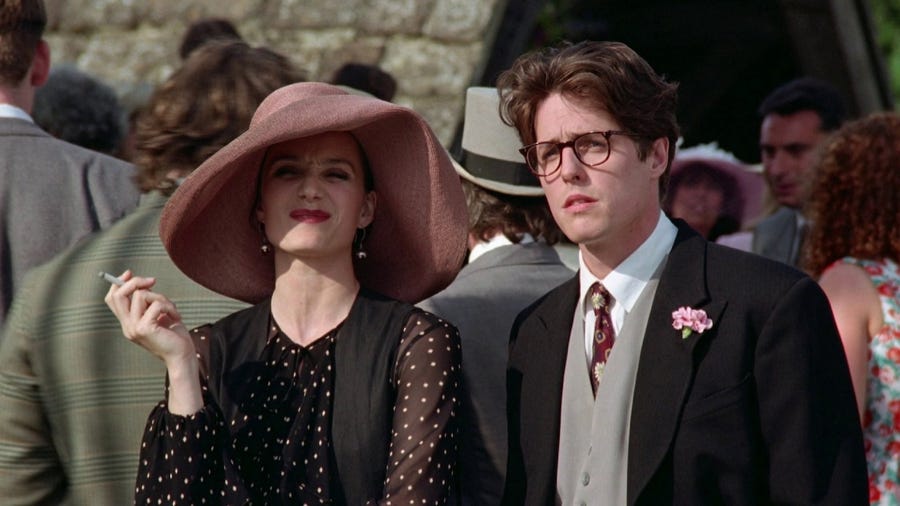
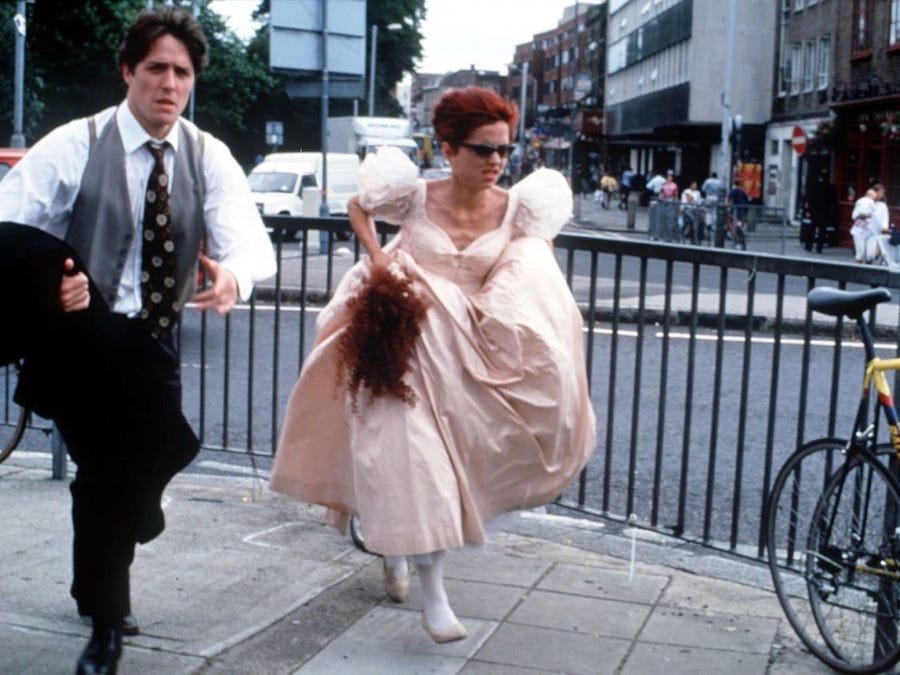
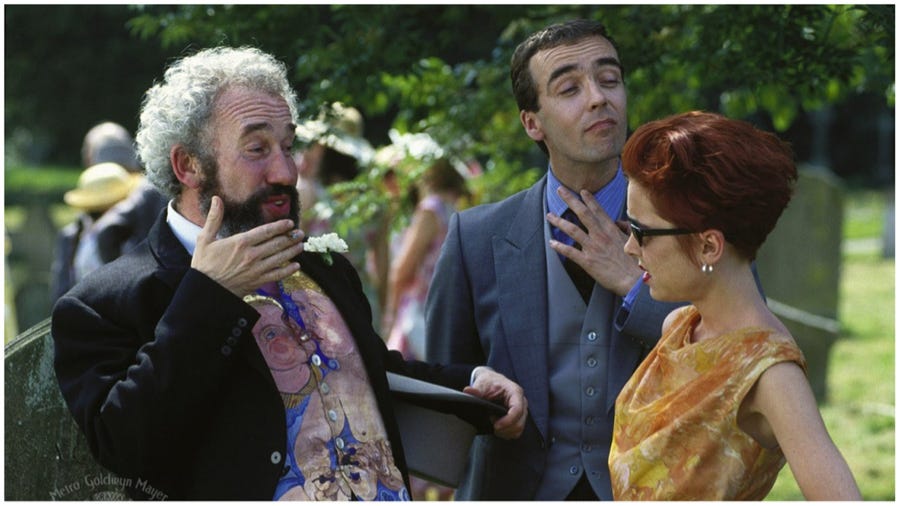
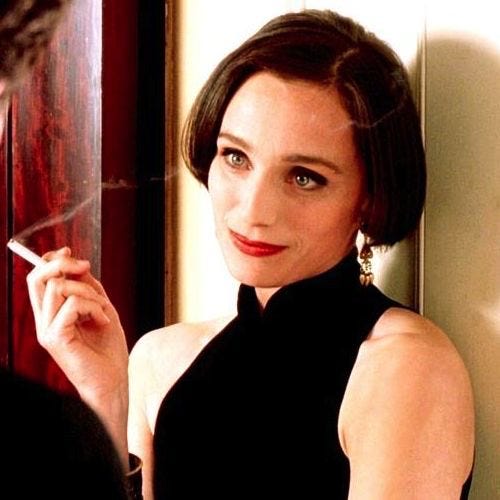
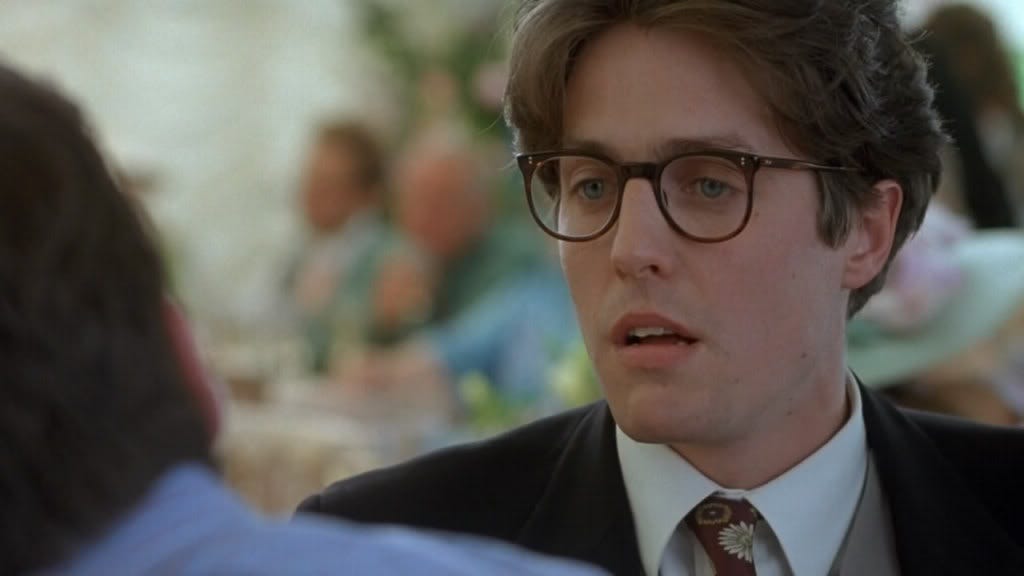
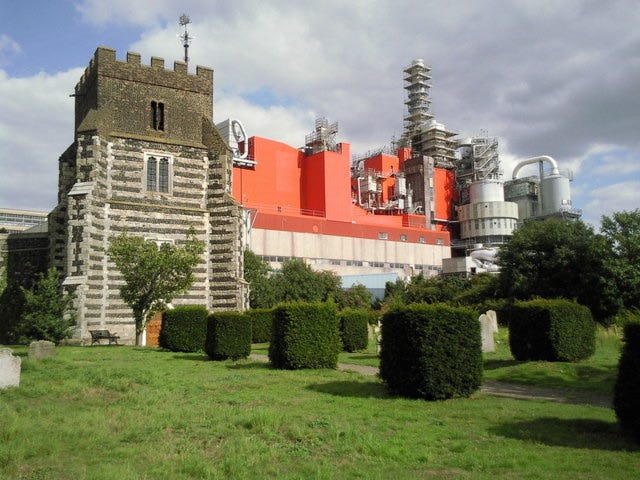
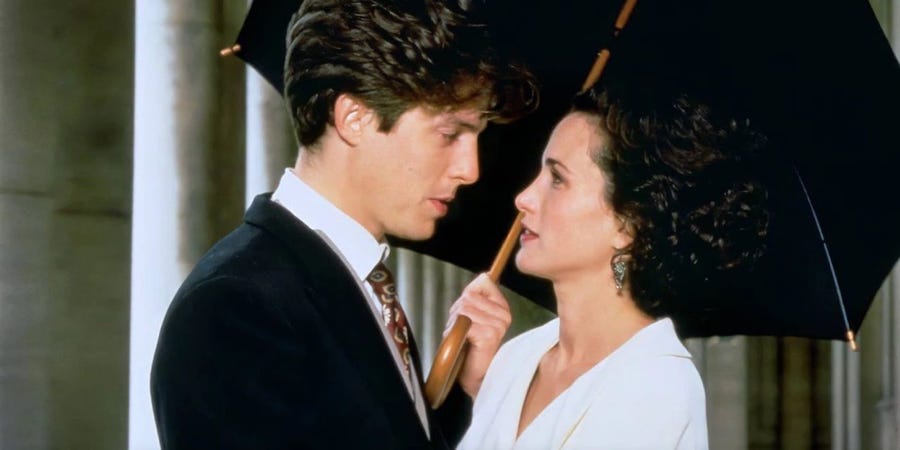
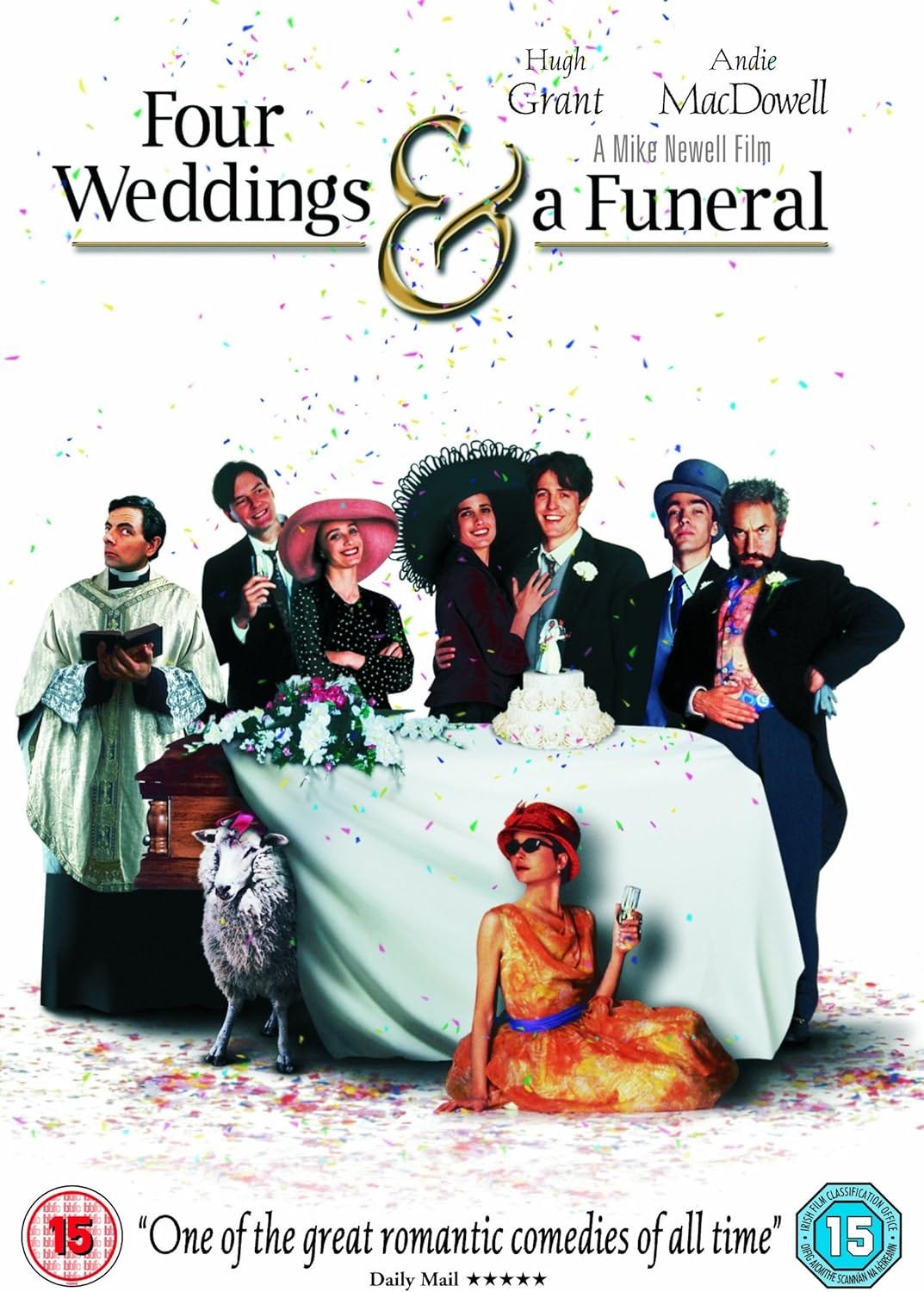
Absolutely one of my favourites...from the opening four letter word dialect, to the funeral poem, to Fiona's heartbreaking confession, all glorious
I love this film except for the Andie McDowell character, so shallow and selfish. Anyone with any depth would have chosen Fiona!